Blinken Tours Middle East As Gaza War Rages Into Fourth Month

Israel pounded Gaza on Sunday as its war with Hamas raged into a fourth month, while top US diplomat Antony Blinken decried the "tragedy" of civilian deaths and warned the conflict threatened the wider region.
US Secretary of State Blinken, speaking in Qatar on the latest leg of his fourth Middle East tour since the start of the war, also said Palestinians displaced by the fighting must be allowed to "return home".
The Qatar-based Al Jazeera network said two journalists working for it were killed when their car was struck in Rafah, in southern Gaza.
They were named as Mustafa Thuria, a video stringer who also worked for AFP and other media organisations, and Hamza Wael Dahdouh, the son of Al Jazeera's Gaza bureau chief who had earlier lost his wife and two other children in an Israeli strike.
Al Jazeera said it condemned the killings and the "targeting" of journalists, while Blinken called the deaths an "unimaginable tragedy".
"And that's also been the case for... far too many innocent Palestinian men, women and children," Blinken said.
AFP correspondents reported air strikes in Khan Yunis, the territory's main southern city, and Rafah near the Egyptian border, where many displaced people have sought refuge.
The war, triggered by deadly Hamas attacks on Israel in early October, has displaced at least 85 percent of Gaza's 2.4 million people, according to UN figures.
"Palestinian civilians must be able to return home as soon as conditions allow," Blinken said. "They cannot, they must not be pressed to leave Gaza."
Some Israeli ministers have recently spoken in favour of "encouraging" Gazans to leave and re-establishing Jewish settlements in the territory, although this is not official Israeli policy.
The Israeli army -- which claims to have "dismantled" Hamas's military leadership in northern Gaza -- reported killing more "terrorists" in central Gaza, including in a drone strike in the Bureij refugee camp.
A military statement said troops had discovered an underground "weapons production site" in the besieged Gaza Strip's north operated by Hamas.
The war started with Hamas's unprecedented October 7 attack on Israel, which resulted in about 1,140 deaths, most of them civilians, according to an AFP tally based on official Israeli figures.
The militants, considered a "terrorist" group by the United States and European Union, also took around 250 hostages, 132 of whom remain in captivity, according to Israel. At least 24 of them are believed to have been killed.
Israel has responded with relentless bombardment and ground invasion that have killed at least 22,835 people, most of them women and children, according to the Gaza health ministry.
"These three months have been like a quarter of a century," said one Gaza resident, Nabil Fathi, 51. "I wake up thinking this is a passing nightmare, but it is a reality.
"Our home and my son's home have been destroyed and we have 20 people martyred in our family. I don't know where we will go even if I survive."
German Foreign Minister Annalena Baerbock, speaking in Jerusalem after meetings with Israeli officials, said it was "increasingly clear that the Israeli army must do more to protect civilians in Gaza".
"The suffering of many innocent people cannot go on like this," she said, urging "less intensive" combat.
As war rages in Gaza, violence has also flared in the occupied West Bank and on Israel's northern border, which has seen near-daily exchanges of fire between Israeli forces and Lebanon's Iran-backed Hezbollah militants.
Hezbollah on Saturday said it had fired 62 rockets at an Israeli military base, days after it blamed Israel for a strike in Beirut that killed Hamas's deputy leader Saleh al-Aruri.
The Israeli military said it had struck Hezbollah "military sites" in response.
Army chief Herzi Halevi said in a statement on Sunday that "Hezbollah decided to enter into this war... and we are increasing the price that they are paying".
At Lebanon's main airport in Beirut, hackers used the departure and arrivals screens to display an anti-Hezbollah message, according to media reports.
"Hassan Nasrallah, no one will support you if you drag the country into war," said the message, addressing Hezbollah's leader. A hardline Christian group whose emblem appeared onscreen has denied involvement.
Blinken, on a whirlwind tour of the Middle East, warned of a "moment of profound tension in the region".
"This is a conflict that could easily metastasize, causing even more insecurity and even more suffering," he said.
Qatar, which helped mediate a one-week truce that saw dozens of hostages released, hosted over the weekend relatives of captives still held in Gaza, said Ruby Chen, the father of 19-year-old captive Itay Chen.
Qatari officials the families had met with "were attentive... and showed empathy to us", the father told a news conference in Tel Aviv.
The release of more hostages "serves the bigger objective, as they see it, which is creating regional stability", said Chen.
Blinken, who late Sunday arrived in the United Arab Emirates, earlier held talks in Jordan with King Abdullah II.
According to a royal statement, Abdullah warned of the Israel-Hamas war's "catastrophic repercussions" and of the need to end "the tragic humanitarian crisis" in Gaza.
In the West Bank, occupied by Israel since 1967, deadly violence has surged in recent months to levels unseen in nearly two decades.
An Israeli strike on Sunday killed seven Palestinians in the northern city of Jenin, the Ramallah-based Palestinian health ministry said, also reporting an eighth fatality by Israeli fire in a separate incident.
Later, Israeli police said that officers responding to a car-ramming attack at a West Bank checkpoint shot a Palestinian girl, with medics confirming the three-year-old child's death.


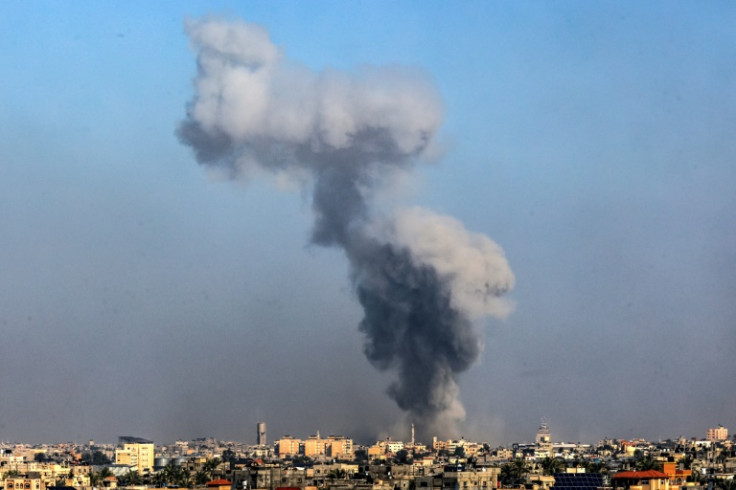
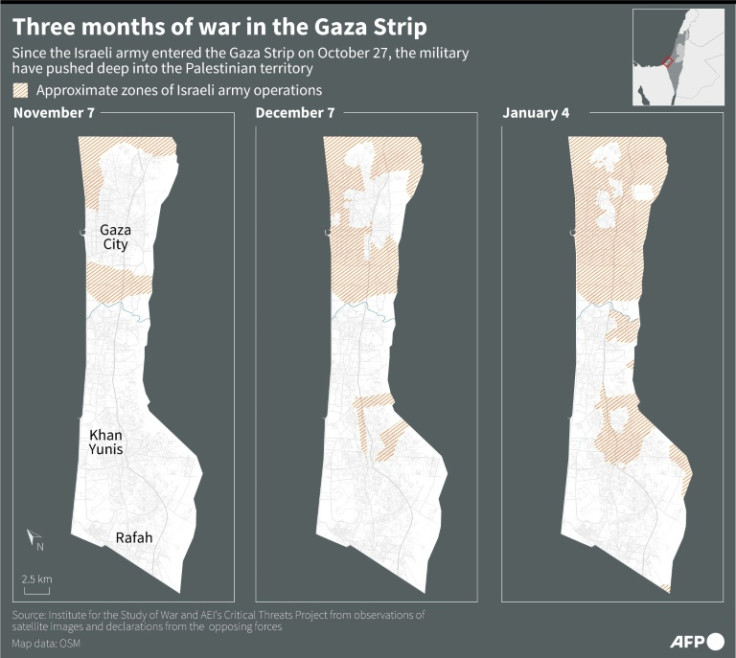
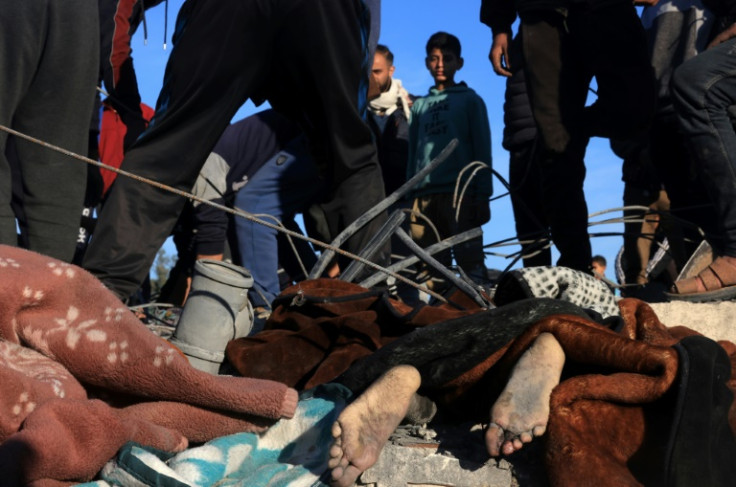
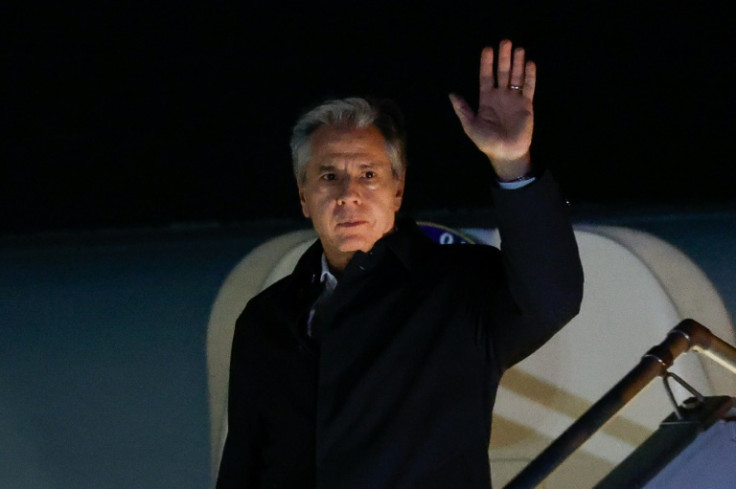
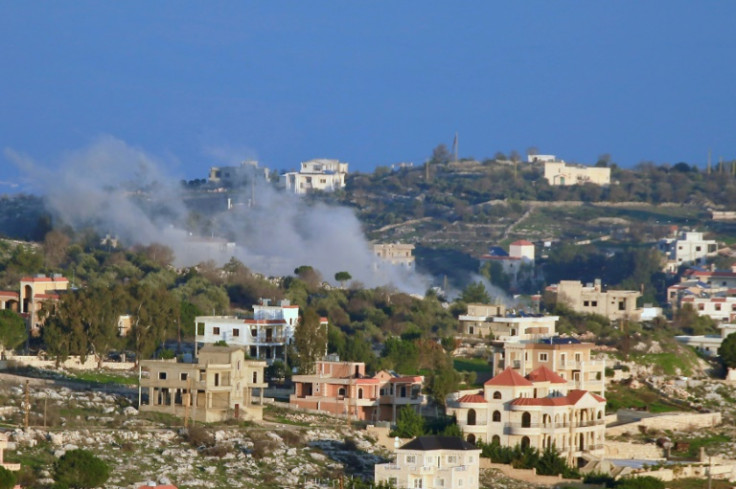
© Copyright AFP 2025. All rights reserved.





















